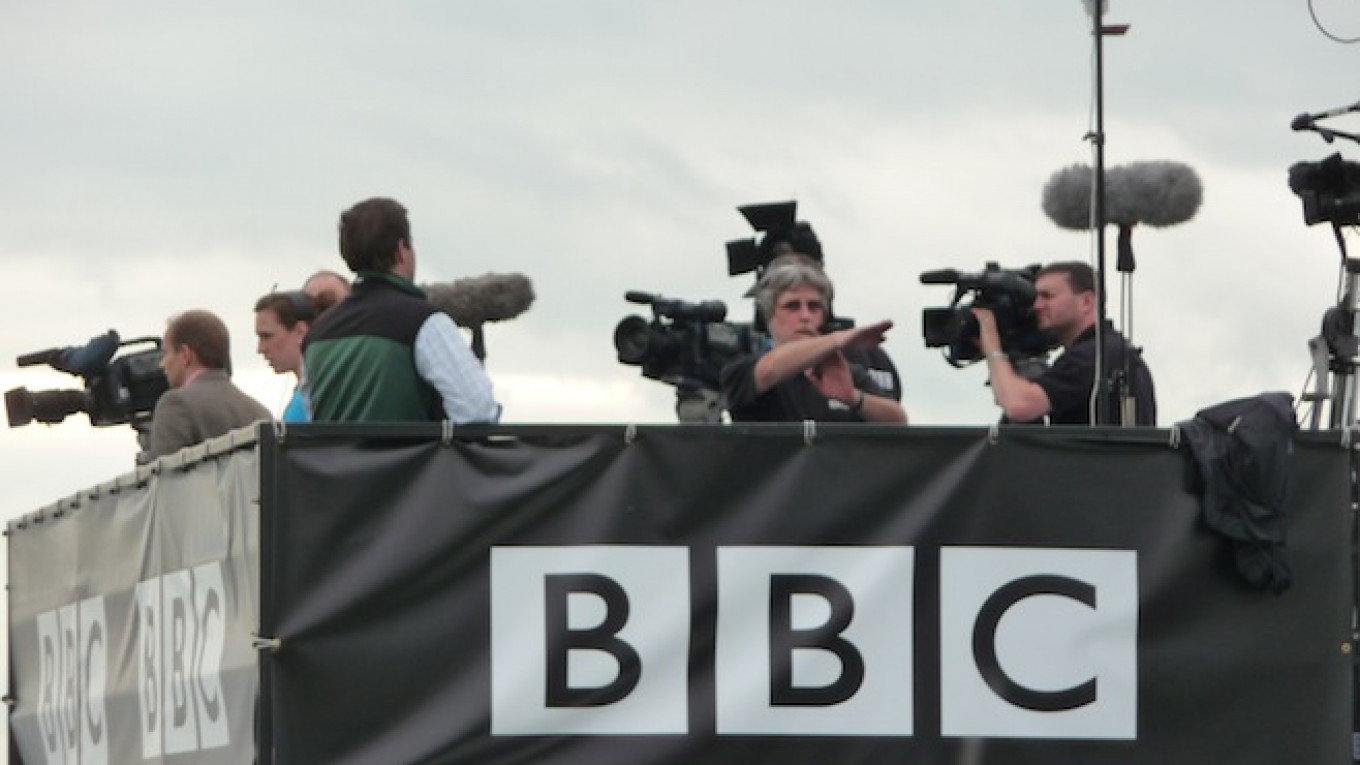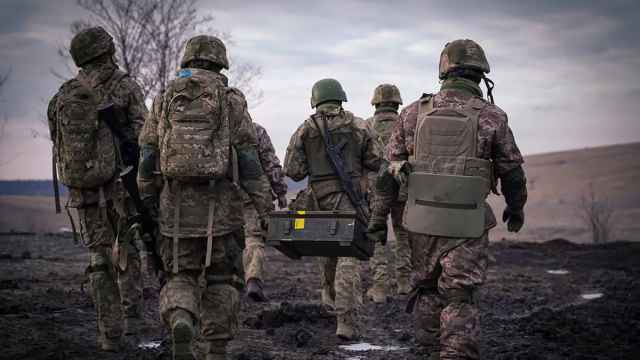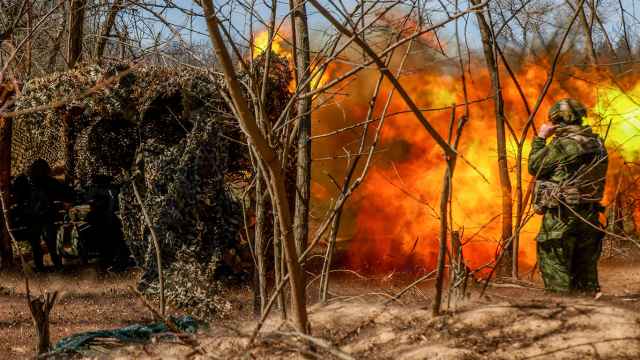British broadcaster the BBC has lodged a formal protest with Russian authorities, saying one of its news crews was attacked while looking into reports Russian soldiers had been killed near Ukraine's border.
Unidentified men assaulted BBC Moscow correspondent Steve Rosenberg, a producer and a cameraman and destroyed their camera in southern Russia on Tuesday, the broadcaster said.
"The attack on our staff, and the destruction of their equipment and recordings, were clearly part of a coordinated attempt to stop accredited news journalists reporting a legitimate news story," Thursday's statement read.
"We deplore this act of violence against our journalists and call on the Russian authorities to conduct a thorough investigation and to condemn the assault on our staff."
The team, which had been filming in the city of Astrakhan were taken to a police station for four hours of questioning and their recording equipment was electronically wiped, the BBC added.
Astrakhan police spokesman Pyotr Rusanov said officers arrived shortly after the attack and were still searching for the culprits.
"At the moment, the attackers have not been detained, but an investigation is being carried out and a criminal case was opened," he said.
On Tuesday, a NATO military officer said Russia still had about 1,000 soldiers along with hundreds of combat vehicles and artillery inside Ukraine.
Russia has denied sending troops into eastern Ukraine to prop up a rebellion by pro-Moscow separatists, despite what Washington and other Western powers say is overwhelming evidence to the contrary.
A Reuters journalist was threatened by unidentified shaven-headed men while looking into reports of deaths of Russian paratroopers in eastern Ukraine in late August. A Russian politician said he was badly beaten after drawing attention to the paratroopers' funerals.
A Message from The Moscow Times:
Dear readers,
We are facing unprecedented challenges. Russia's Prosecutor General's Office has designated The Moscow Times as an "undesirable" organization, criminalizing our work and putting our staff at risk of prosecution. This follows our earlier unjust labeling as a "foreign agent."
These actions are direct attempts to silence independent journalism in Russia. The authorities claim our work "discredits the decisions of the Russian leadership." We see things differently: we strive to provide accurate, unbiased reporting on Russia.
We, the journalists of The Moscow Times, refuse to be silenced. But to continue our work, we need your help.
Your support, no matter how small, makes a world of difference. If you can, please support us monthly starting from just $2. It's quick to set up, and every contribution makes a significant impact.
By supporting The Moscow Times, you're defending open, independent journalism in the face of repression. Thank you for standing with us.
Remind me later.






